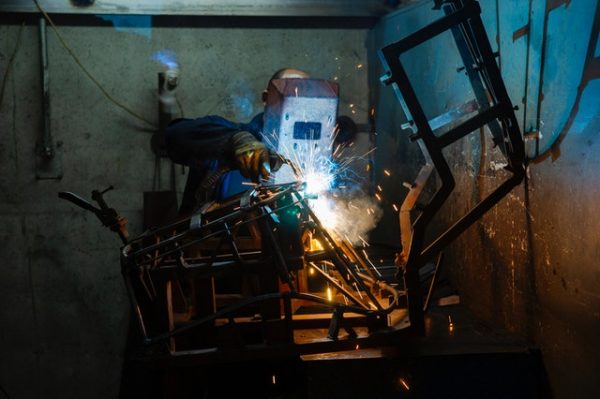Like straight out of the Renaissance, logistics workers need to gather more and more skills and knowledge. As multidisciplinary professionals, they need skills that allow them to face an environment that is as demanding as it is changing. But what are these qualities?
9 qualities of a great logistics worker
methodical
Logistics is a science based on precision. That makes the ability to be thorough and exact highly valued. The desire for refined processes, for constant revision and for accuracy is highly appreciated in our sector. From the person in charge of designing a supply chain for a large multinational to the operations staff of a logistics operator in charge of documenting a shipment, managing an incident or processing an insurance statement; all these tasks are grateful that those in charge of carrying them out are strictly methodical.
creative
Being methodical is often confused with a lack of inspiration and not lifting your head from the paper or the screen. And anything farter from the reality. Logistics professionals need to come up with new and different solutions when faced with an infinite casuistry on a daily basis.
Companies and those responsible for supply chains are increasingly aware that they have to continually rethink their decisions and their ways of working, since the best way to help a client can change from one day to the next. Redesigning routes, changing the shipping method as appropriate and adapting in the best way to the latest needs of our client are part of the day-to-day transport.
able to improvise
If logistics is the science of precision, it is also the art of the moment. And it is that the need to be creative is closely related to knowing how to improvise. No matter how bulletproof your supply chain is, sooner or later a problem will happen. It may be human error, mechanical failure, or a weather trick that is conspiring against you, but in all those cases you will need to adapt instantly. That is, you will have to improvise.
All the people dedicated to logistics have had to be able to move heaven and earth to manage to overcome the most diverse situations. And this can only be achieved if our human team is prepared to do something new every day and if they have banished from their minds the fateful “we have never done this”.
proactive
It is one of the most requested qualities in selection processes and logistics is no exception. In a sector in which processes that can be very repetitive are constantly refined, the ability of employees to detect failures and suggest improvements is a highly sought after asset.
On too many occasions, staff detect problems that, due to a lack of initiative, do not reach the ears of the right people. When we go a step further and become process consultants we become much more valuable to our company and to our clients.
Teamwork
A company, like a supply chain, is a succession of gears. And for everyone to be well-oiled, they need to be able to communicate and work as a team. The number of people and departments involved from receiving an order to the moment of delivery is much larger than it might seem at first.
That is why it is so valuable to have employees who know how to work together and understand that they are part of a team and not just due to their department. Workers who promote this feeling in their companies and know how to seek the common good by collaborating with others are increasingly sought after.
Global vision
Sometimes it is necessary to take two steps back to continue moving forward. The pressure of daily obligations -and sometimes the lack of internal training by companies- means that many workers do not have an overview of the entire business. This vision consists both in knowing what our company is like -its values, what makes it really different and necessary for its customers, etc- and in knowing our sector -what the competition is doing, what customers are demanding, what they look for in a company like ours.
Taking those two steps allows us, in addition to understanding the company’s strategy, to give meaning to our work. Understand why what we do is so important, how it influences customer perception and customer satisfaction. In the same way, it also makes it easier for us to be able to innovate and provide more accurate solutions.
performance under pressure
A logistics chain is an ecosystem with a lot of pressure and that you have to know how to cope with. Those of us who work in logistics know of the capital importance we have for companies and of the big difference between whether a material has reached its destination on time or not. Therefore, the situations we have to face can cause a lot of stress.
We are the trustees of our customers’ trust and that entails great responsibility and demand. The delivery time of each shipment is a commitment that must be fulfilled. And when the unforeseen events arrive, we will not be able to put our creativity to work if we do not know how to handle the stress derived from the lack of time, the seriousness of the case or the novelty of the problem.
In logistics we are obliged to be creative and decisive at a thousand revolutions per minute.
Gift of people
The human factor is essential in all areas. We all prefer to be people rather than company positions and we like to be treated as such. In addition, a logistics operator has contact with many people from their clients’ companies. The driver who is going to load is related to the warehouse operators, the account salesperson with the logistics manager or another manager, the customer service staff with anyone who may need information about a shipment or any other query, both admin departments talk to check billing details…
Although logistics move goods, we must never forget that they move between people. A good people skills will help to improve collaboration and communication, as well as to take moments of tension that may arise with a right hand.
Adaptation
One of the most influential factors in logistics is technology. The introduction of new advances and, especially, the development of electronic commerce and the Internet of things are changing the needs of customers and the services offered by transport companies on a daily basis.
These revolutions not only force companies to retrain, but also their workers. Terms such as Big Data or the importance of complete and transparent traceability have been gaining in importance and logistics professionals have had to adapt to these changes. Currently, the idea of having knowledge or performing a task in an immovable way for many years is obsolete. Change is already the new norm.
Achieving these nine attributes is a great start for anyone who aspires to be the great professional that any logistics company, like ours, would like to have.


